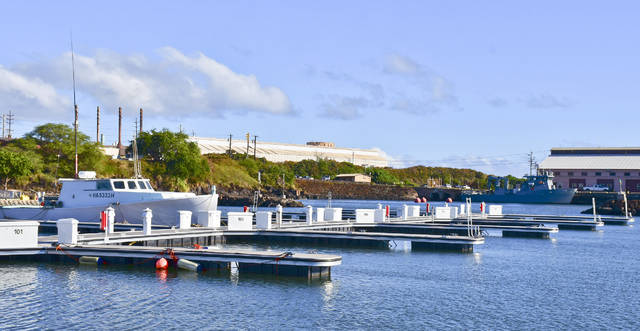LIHUE — New rules for harbors approved by Gov. David Ige are triggering concern and celebration from the Kauai community as amendments target feral cats and boat mooring.
Once they go into effect, the rules will ban abandoning, feeding or releasing cats at state Division of Boating and Ocean Recreation small boat harbor and boating facilities. It’s a topic that garnered the attention of Kauai Community Cat Project (KCCP) and other animal advocates who conduct trap-neuter-release (TNR) activities in colonies in those areas and say those activities will gradually lower the feral cat population on Kauai.
Martha Girdany, vice president of KCCP, said the state risks a rise in feral cat population, as stopping sterilization efforts will result in a larger population that is harder to control.
“In addition, removing cats from small boat harbors would contribute to an increased rodent population in those areas,” Girdany said.
Basil Scott, president of KCCP, said there aren’t any colonies that are being cared for on harbor lands on Kauai, but Port Allen’s small boat harbor is close to a neighborhood.
“Port Allen is the worst because some neighborhood cats would be in the harbor area from time to time,” Scott said.
Others, however, say cats don’t belong in harbors and present a danger to animals like Hawaiian monk seals because of the parasite toxoplasmosis cats carry in their feces.
“We’re losing Hawaiian monk seals to toxoplasmosis, we know the impacts of cats,” said Hanalei’s Makaala Kaaumoana, who has been following the issue.
“Harbors are a convenient place to feed cats, but we know the impacts.”
Kaaumoana suggests feral cats should be cared for in other ways, like in an enclosed sanctuary or somewhere that eliminates the chance of toxoplasmosis being transmitted through their feces into the ocean.
In addition to rules about feral cats, Ige approved amendments strengthening rules against alcohol consumption and camping, as well as boat mooring, which Kaaumoana said has been an issue in Hanalei.
“People come and moor their boats in the river or out in the mooring area,” she said.
After 72 hours of being moored in those areas, boaters are required to get a permit and go into the mooring area, which means they have to manage their wastewater.
Kaaumoana says that’s a win for Hanalei Bay.
“Both of these rule components (feral cat and mooring rules) should result in cleaner ocean waters,” she said. “I’m grateful to the governor for protecting our native species.”
Other newly signed rules included in the comprehensive administrative rule amendment package include requiring those operating thrill craft to have passed a state approved course, updating rules for diver’s flags, and updating language in the documents.
•••
Jessica Else, staff writer, can be reached at 245-0452 or jelse@thegardenisland.com.



Harbor look’s great finally boats can get back in the water. Now let’s see if the harbor master will finally have KPD or whoever is responsible to enforce the laws already in place concerning parking, fishing and loitering within the harbor premises and loading ramp. There was an illegal parked truck, trailer and boat there for the entire year of construction. How about making a place for people to fish instead of in the ramp zone in front of the “NO FISHING” signs
Please notify DNLR if you see any of the crazy cat feeders breaking this new law! How they can call the hundreds of feral cats that live at the harbor “community cats” is shameful. And these people have NOT reduced the feral cat population at all! Last year we lost 8 monk seals due to toxoplasmosis that comes only from cats. Do they call this progress? And where can you find the highest number of feral cats near the ocean? At the harbor. I applaud our state workers and scientists for passing this new law and I hope they enforce it. Remember you can just shoot some video and record their license plate to have evidence to convict these people who kill our native species just to satisfy some sick urge they have to feed feral cats.
Perhaps cleaning up the 200+ cesspools in hanalei would do more to “clean the water” than stopping the cats…